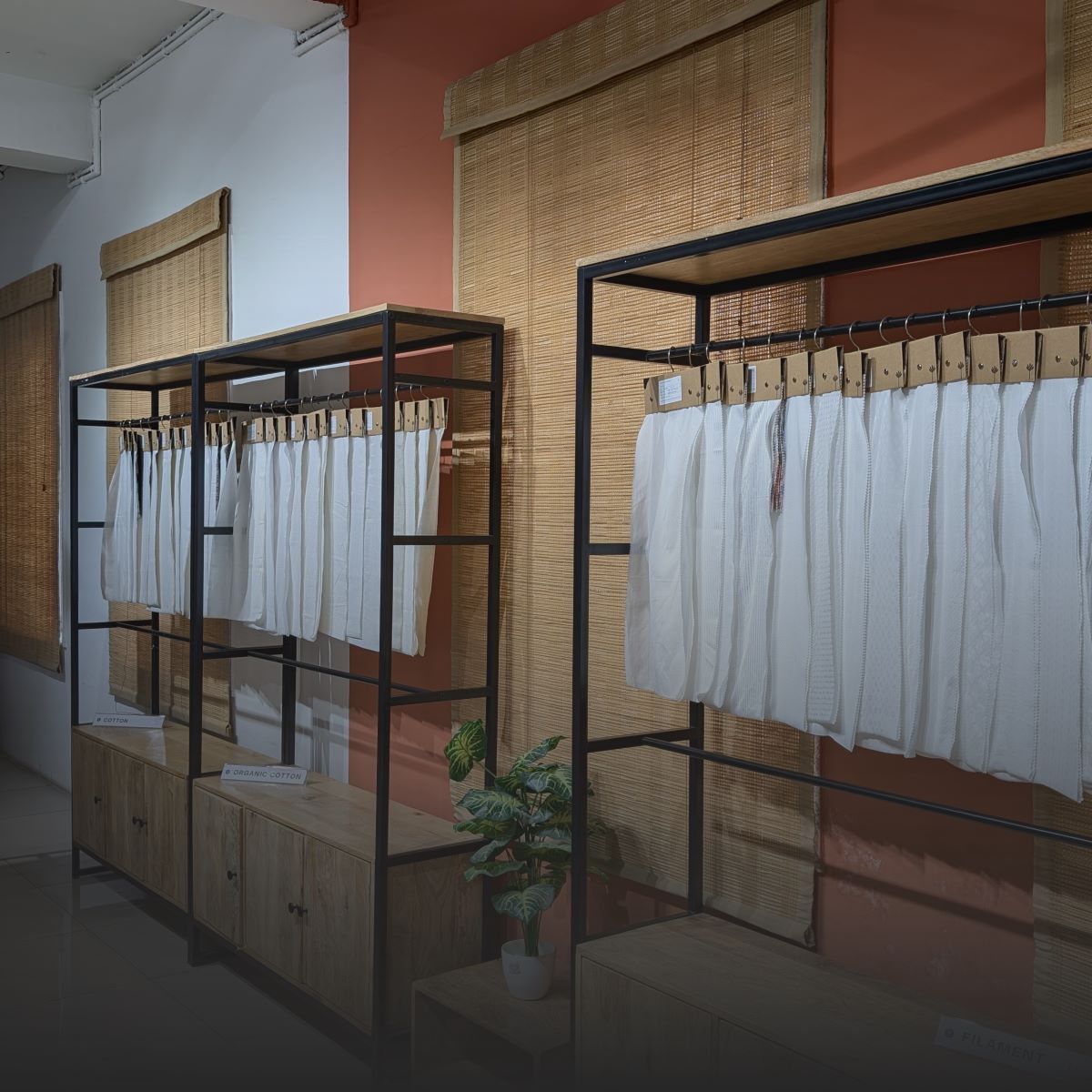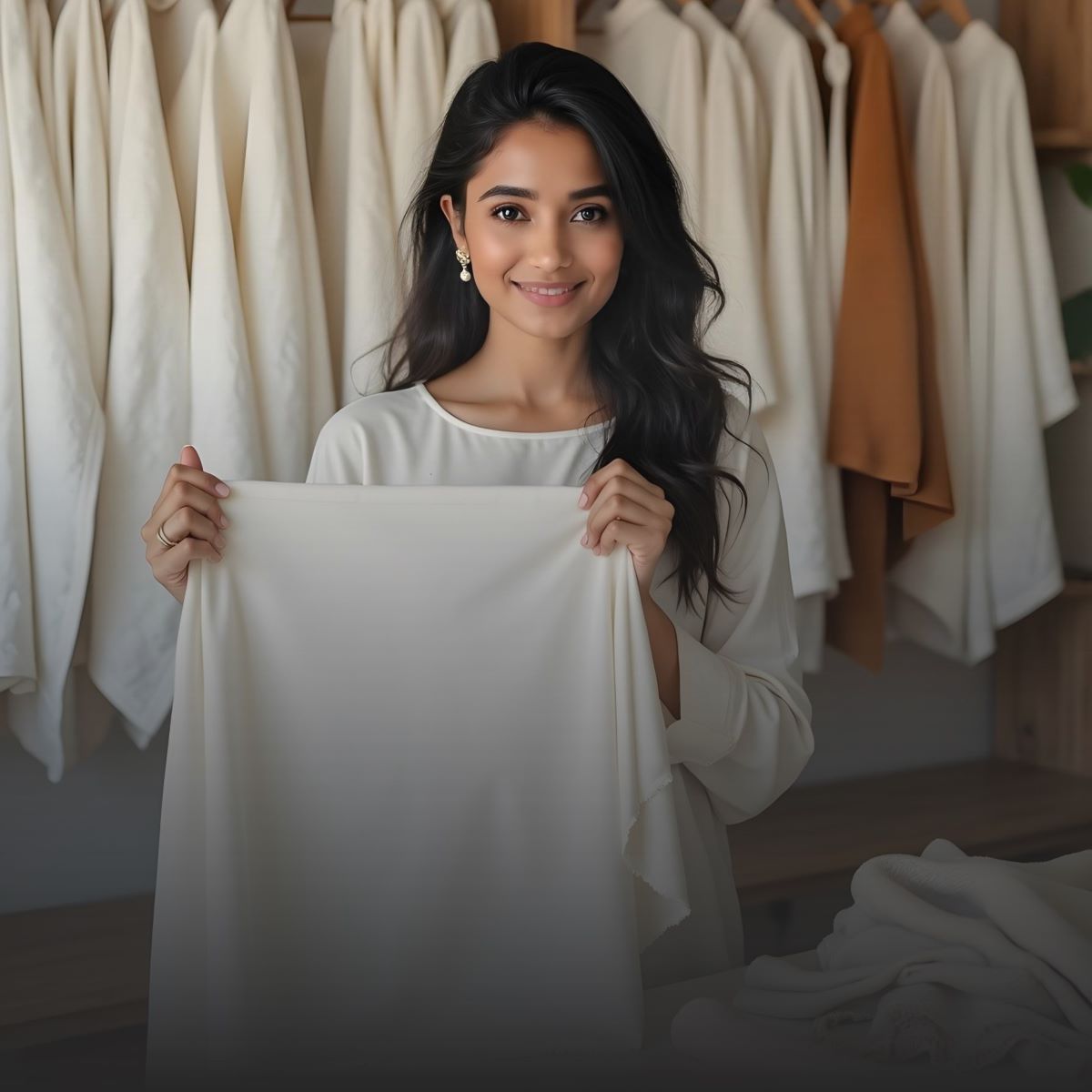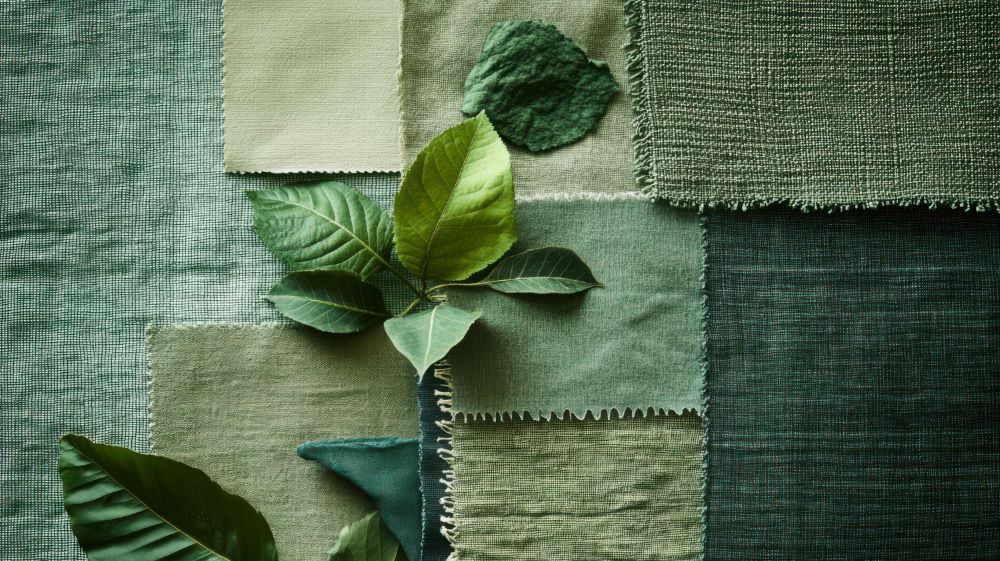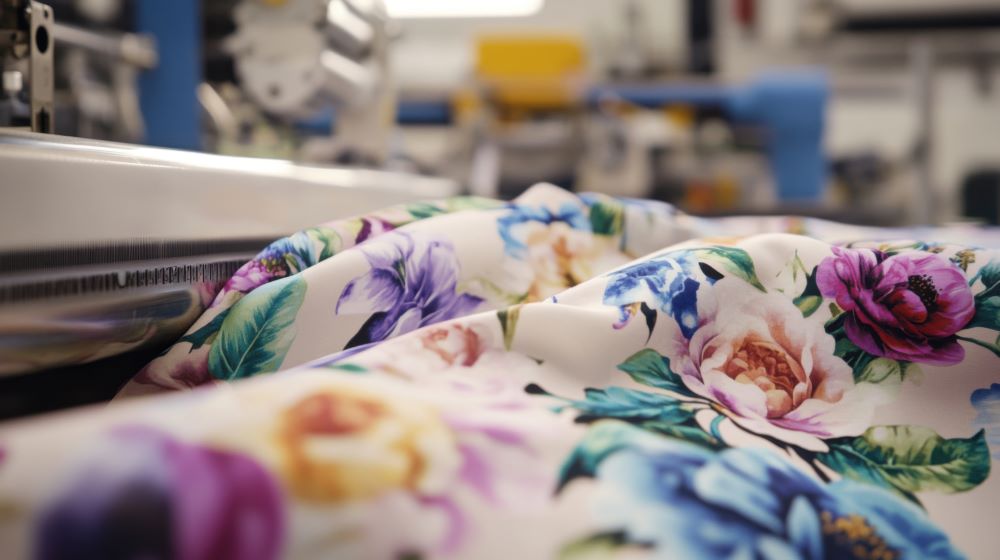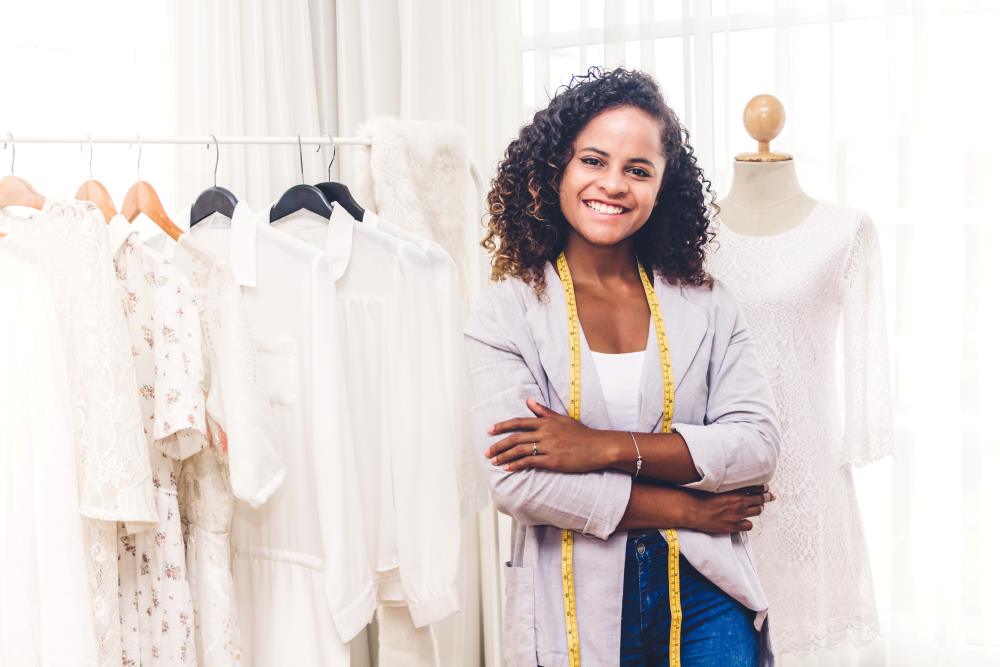Sourcing sustainable fabric is crucial for brands aiming to reduce environmental impact and meet growing consumer demand for ethical products. Choosing the right B2B platform makes the process easier, faster and more reliable. These platforms connect you with verified suppliers who offer certified eco-friendly fabrics in bulk.
You get access to key services like global shipping, low minimum order quantities (MOQs), fabric sampling and proper certification handling. This helps you save time and reduce risks while building a responsible supply chain.
In this blog, you will learn what sustainable fabric means for businesses, why B2B platforms matter, which platforms lead the market and how to choose the right partner for your brand.
What Is Sustainable Fabric? A B2B Perspective
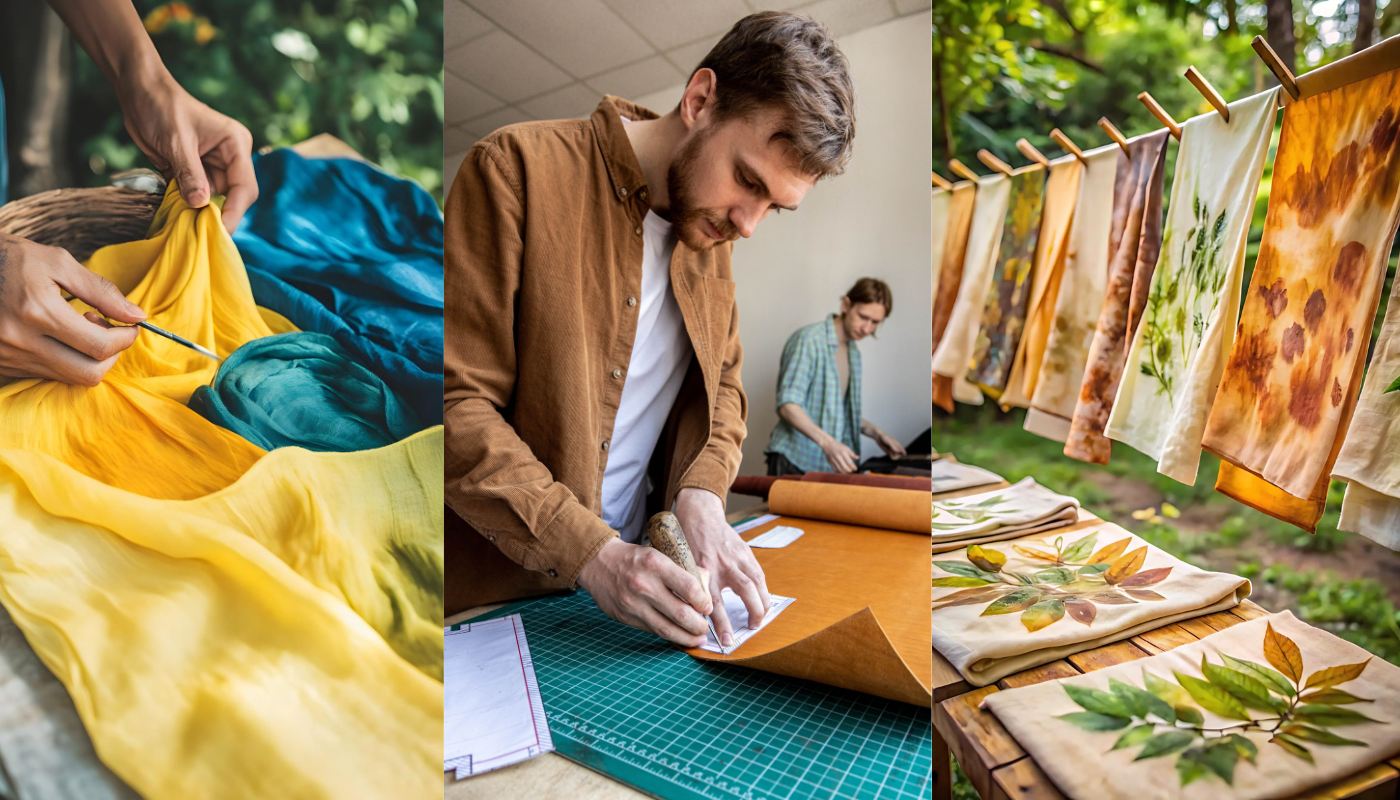
Sustainable fabric means less harm and more care—across farming, spinning, dyeing and delivery. In B2B, this means clear checks, strong proof and easy bulk sourcing.
Here’s what you should check when buying eco fabrics in bulk:
-
Organic base: Cotton, hemp or bamboo with GOTS or BCI marks
-
Clean process: No harsh dyes, safe water use, less energy
-
Traceability: From farm to fabric roll
-
Fair labor: Verified worker safety and fair pay
- Recycled options: PET, nylon or mixed blends
These points help you meet buyer needs, avoid greenwashing and grow a brand that lasts.
Why Choose a B2B Platform for Sustainable Textile Sourcing?

Once you know what makes fabric sustainable, the next step is to find it at scale.
Sourcing in bulk from B2B platforms can save time, reduce risk and offer better support. These platforms are made for businesses that need reliable, large-scale options.
Here’s why B2B sourcing works better:
- Verified suppliers with proper eco certifications
- Bulk-friendly terms with flexible minimum orders
- Faster sampling and swatch packs for quick testing
- Logistics support, including global delivery and documents
- Transparent pricing with better control over cost
If you’re building a product line, B2B sourcing helps you stay consistent while cutting delays and confusion.
Let’s now look at the best platforms that offer these benefits worldwide.
Top B2B Platforms for Sourcing Sustainable Fabrics (With Global Reach)

Choosing the right B2B platform helps your business access verified, eco-friendly fabrics with ease. These platforms support bulk buying, offer global delivery and cater to small and large brands alike.
Each one listed below is known for quality, service and ethical sourcing support.
1. Fabriclore (India + Global)
Fabriclore offers a strong mix of certified organic and natural fabrics. It supports brands across India and exports to the USA, UK, Canada and more.
- Offers GOTS-certified cotton, hemp, TENCEL™ and more
- Ships globally with low MOQs and swatch support
- Custom print and dye options
- It is ideal for fashion brands, boutique labels and exporters
2. SwatchOn (South Korea)
SwatchOn connects global designers with Korean fabric mills offering eco-certified materials. It’s a top choice for digital swatch browsing and fast shipping.
- OEKO-TEX and sustainable fabric options
- Ships to 100+ countries
- Easy swatch ordering with low minimums
- Popular with indie fashion startups and mid-size labels
3. Queen of Raw (USA)
Queen of Raw helps you reduce waste by sourcing deadstock fabrics. It’s perfect for limited collections and brands focused on circular fashion.
- Recycled and surplus fabrics from global mills
- Strong US and international delivery network
- It helps reduce textile waste and sourcing cost
- Good fit for eco-conscious brands and capsule drops
4. Offset Warehouse (UK/EU)
Offset Warehouse offers a wide range of eco fabrics from artisan producers. It supports sustainable supply chains with detailed product sourcing data.
- Organic silk, cotton and blends
- Serves UK and EU-based designers
- Offers swatches and detailed fiber info
- Great for brands focused on ethical sourcing
5. THR3EFOLD + Simplify (Global Ethical Directories)
These platforms list verified factories and suppliers that meet sustainability standards. They help you build your supply chain from scratch.
- Match with ethical suppliers based on your needs
- Verified partners with certifications
- Global reach, helpful for both fabrics and finished goods
- Useful for new and growing fashion brands
Key Benefits of Using Sustainable Fabric Suppliers for Your Brand

Sourcing sustainable fabrics does more than reduce harm to the planet. It also strengthens your brand identity and builds customer trust.
Here’s how it helps your business grow:
-
Boosts credibility
Shoppers prefer brands that show care for people and the environment.
-
Supports compliance
Many regions now require proof of ethical sourcing and eco-certifications.
-
Improves product quality
Certified fabrics are safer, skin-friendly and tested for durability.
-
Increases customer loyalty
People return to brands that match their values.
-
Builds market value
Eco-conscious branding attracts better partnerships and press coverage.
When you choose verified suppliers, you set your brand.
Must-Have Certifications When Sourcing Eco Fabrics in Bulk

Certifications help you verify if a fabric meets real sustainability standards. These labels are not for show—they protect your business from false claims and ensure you meet buyer expectations.
Here are key certifications to check before placing any bulk order:
GOTS (Global Organic Textile Standard)
It confirms the fabric is made from organic fibers and processed without harmful chemicals.
OEKO-TEX Standard 100
Ensures the fabric has been tested for harmful substances and is safe for human use.
FSC (Forest Stewardship Council)
This applies to rayon, viscose and modal. Confirms the raw material comes from responsibly managed forests.
BCI (Better Cotton Initiative)
Promotes better farming practices. Common in large-scale cotton supply chains.
Lenzing Certifications
For TENCEL™, Modal and EcoVero. Verifies low-impact production and fiber origin.
Ask for certificates before you buy. Check if they’re valid, issued by a trusted body and cover the full production process—not just the fiber source.
What to Check Before Partnering With a B2B Supplier
Not all suppliers meet the same standards. Before you commit, review a few key points to protect your time, money and brand.
Check these essentials before placing bulk orders:
-
Fabric origin and traceability
Ask where the fabric comes from. A reliable supplier will share clear sourcing details.
-
Sample availability
Always test before you buy. Choose suppliers that offer swatches or sample packs.
-
Shipping speed and reliability
Check delivery timelines. Late deliveries can stall your production.
-
Past reviews and clients
Look at who they have worked with. Check reviews on trusted B2B platforms or forums.
-
Support with documentation
For export or retail, you may need custom invoices or certificates. Confirm they can help.
Tips for Small Fashion Brands Sourcing Sustainable Textiles

Starting small requires careful choices to stretch your budget and still get quality fabric. Look for platforms and suppliers that offer flexibility and support tailored to smaller orders.
-
Look for low minimum order quantities (MOQs)
Small brands should avoid large upfront costs. Platforms with low MOQs let you buy just enough fabric to test designs and demand without risking too much capital.
-
Use digital sampling or swatch packs
Ordering samples online saves time and money. Swatch packs let you feel and see fabric quality before committing to bulk orders, reducing the chance of costly mistakes.
-
Partner with suppliers offering extra services
Suppliers that provide custom printing, dyeing or design support can help you speed up product development. This saves you from juggling multiple vendors and keeps production smooth.
-
Communicate clearly and regularly
Clear communication about your needs and deadlines helps avoid delays. Share your exact requirements and ask questions early to keep the process on track.
-
Build long-term supplier relationships
Trustworthy suppliers can grow with your brand. Consistent quality, flexible terms and good service build a partnership that benefits both sides.
These tips help small brands get the best value and reliability from sustainable fabric sourcing. Up next, a detailed comparison of top B2B platforms will help you pick the best supplier for your business needs.
Conclusion
Sourcing sustainable fabric through the right B2B platform supports your brand’s growth and ethical goals. Trusted platforms offer verified suppliers, certified eco-friendly materials and flexible order options to fit your business size.
Using these platforms helps you save money, reduce environmental impact and build consumer trust. Take time to check certifications, samples, shipping terms and customer reviews before partnering with any supplier.
Focus on building strong relationships with suppliers who understand your values and can support your brand’s needs. This approach ensures you maintain quality, compliance and relevance in the sustainable market.
FAQs
How do you source fabric sustainably?
Sourcing fabric sustainably means choosing materials that reduce environmental impact. Look for fabrics with certifications like GOTS and OEKO-TEX. Check for transparent supply chains and low-impact dyeing. Use trusted B2B platforms that offer verified sustainable fabrics and sample options before bulk buying.
Where do top designers get their fabrics from?
Top designers source fabrics from verified B2B platforms worldwide. These platforms offer certified eco-friendly fabrics with flexible order sizes and global shipping. Popular choices include Fabriclore (India), Queen of Raw (USA) and Offset Warehouse (UK/EU). They prioritize quality, certifications and transparent sourcing.
What is the most sustainable choice in fabrics?
The most sustainable fabrics are organic cotton, linen, hemp and Tencel, which use fewer resources and chemicals. Recycled fabrics also reduce waste. Look for certifications like GOTS, OEKO-TEX and FSC to ensure eco-friendly and ethical production.
How to do fabric sourcing?
Define your fabric type and quality needs first. Use certified B2B platforms to find suppliers and request swatches before ordering bulk. Compare MOQs, prices and shipping. Verify the supplier’s transparency on origin and dyeing. Check reviews and request compliance documents.
